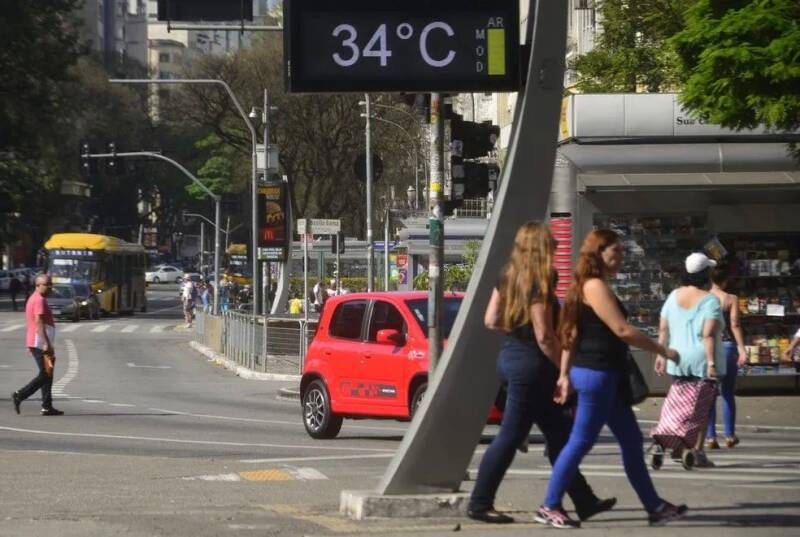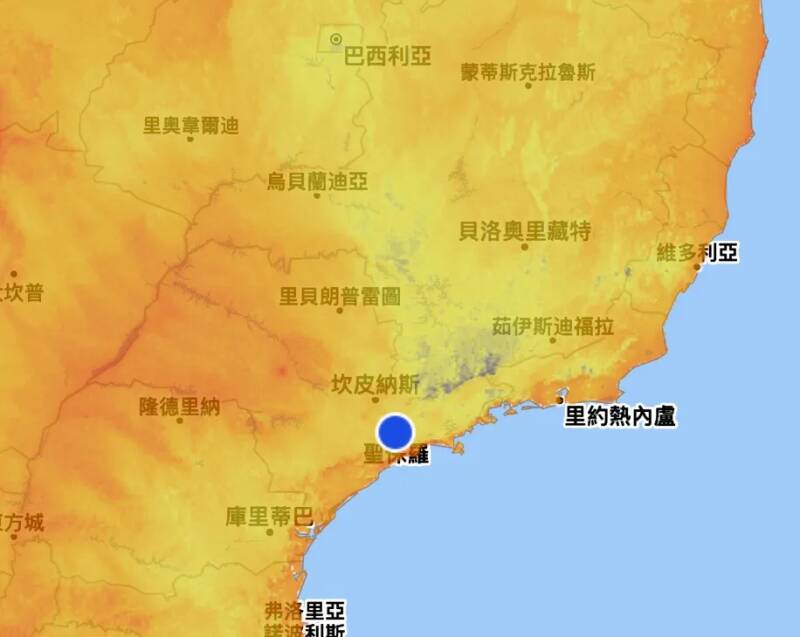The weather is abnormal! Excessive high temperatures in Brazil affect coffee season in autumn
Recently, extreme weather continues to affect the world, Brazil temperature reversal and other phenomena, such weather will disrupt the growth process of crops, affecting yields.
According to Brazilian media reports, the recent heat wave hit the city of Sao Paulo in Brazil. May was supposed to be autumn in Brazil, with temperatures between 18 ℃ and 27 ℃. But in May this year, it recorded the hottest day in May in at least 81 years, with temperatures of 32.8 °C and generally above 30 ℃.

According to meteorologists at CLIMATEMPO Meteorology, the current high temperature in Brazil is an unusual phenomenon, which is due to atmospheric blockage, El Ni ñ o and cold air in the south.
At present, Brazil is blocked by a strong dry hot air mass on the island in central Brazil and hinders the northward movement of cold air from the south. Due to the influence of cold air, it strengthens the heat in the southeast. As a result, the wind in central Brazil will transport more hot air from inland, so the temperature will rise further.

In addition to the state of Sao Paulo, cities in central Brazil also face heat waves, such as Minas Gerais, and drought and reduced rainfall due to the heat.
According to Brazilian weather records, Minas Gerais has not rained in the past few weeks, which is 0% of the historical average, and the temperature will remain at 30 °C or above. High temperatures and low rainfall are not conducive to coffee growth.
In addition, hot weather will lead to accelerated fruit development and ripening, in addition, continuous exposure to temperatures as high as 30 °C or above will slow down the growth of coffee trees, turn yellow leaves and affect the final yield.
Recently, as coffee producers such as Brazil and Vietnam reported an increase in production and exports, international futures prices fell, as did spot coffee prices in Brazil.
At present, the spot price of Arabica in the Brazilian state of Minas Gerais is 1170 reais per bag, down from 1340 reais per bag in April, but still higher than the price for the same period in the past five years.
In addition, the spot price of coffee pre-sold in September was 1130 reais per bag, lower than the current spot price on the market. Therefore, the market expects that the harvest will affect the price because it is in the harvest period of the new production quarter, but the price is also uncertain due to the unstable weather in the future.
In addition, the head of the International El Ni ñ o Research Center (CIIFEN) said at an earlier news conference that La Nina is expected to appear in the second half of this year after the withdrawal of El Ni ñ o. The intensive switching of the two climate models leads to more severe temperature fluctuations and more serious impact on global agricultural operations.
Important Notice :
前街咖啡 FrontStreet Coffee has moved to new addredd:
FrontStreet Coffee Address: 315,Donghua East Road,GuangZhou
Tel:020 38364473
- Prev

Introduction to the flavors of Peruvian coffee producing areas in South America
In South America, the soil and growing conditions are very suitable for growing coffee, so there are many coffee-producing countries, such as Colombia, Ecuador, Brazil, Peru and other countries. Among them, Peru is relatively low-key, but because of its beautiful mountains and rivers, it can also produce high-quality coffee beans. Peru is full of Peru
- Next

Can iced coffee cool down through ice? What methods can I quickly cool coffee liquor?
When talking about the top ice drinks in cafes in summer, in addition to the "star players" who have ranked first all year round, such as Ice American, Cold Extract, and Ice Drop, Ice Hand Chong is undoubtedly the most popular one. It is not only refreshing and pleasant, soft sour, sweet and clear, but also refreshing and quenching your thirst under the action of ice cubes. It can definitely be called a summer cool-off
Related
- What grade does Jamaica Blue Mountain No. 1 coffee belong to and how to drink it better? What is the highest grade of Blue Mountain coffee for coffee aristocrats?
- What are the flavor characteristics of the world-famous coffee Blue Mountain No. 1 Golden Mantelin? What are the characteristics of deep-roasted bitter coffee?
- Can I make coffee a second time in an Italian hand-brewed mocha pot? Why can't coffee be brewed several times like tea leaves?
- Hand-brewed coffee flows with a knife and a tornado. How to brew it? What is the proportion of grinding water and water temperature divided into?
- What is the difference between Indonesian Sumatra Mantinin coffee and gold Mantinin? How to distinguish between real and fake golden Mantelin coffee?
- What does bypass mean in coffee? Why can hand-brewed coffee and water make it better?
- Unexpected! Ruixing Telunsu lattes use a smoothie machine to foam milk?!
- % Arabia's first store in Henan opens into the village?! Netizen: Thought it was P's
- Does an authentic standard mocha coffee recipe use chocolate sauce or powder? Mocha Latte/Dirty Coffee/Salty Mocha Coffee Recipe Share!
- What is the difference between Vietnam egg coffee and Norway egg coffee? Hand-brewed single product coffee filter paper filter cloth filter flat solution!

